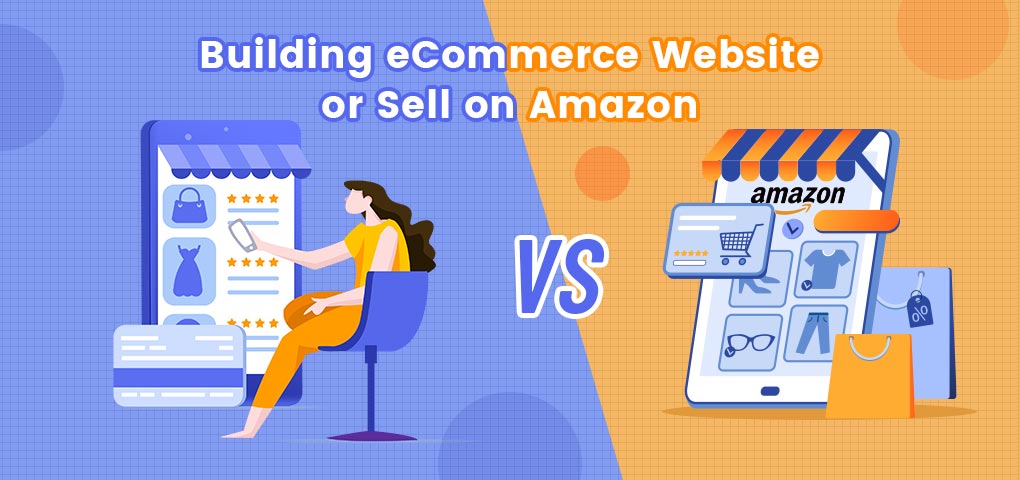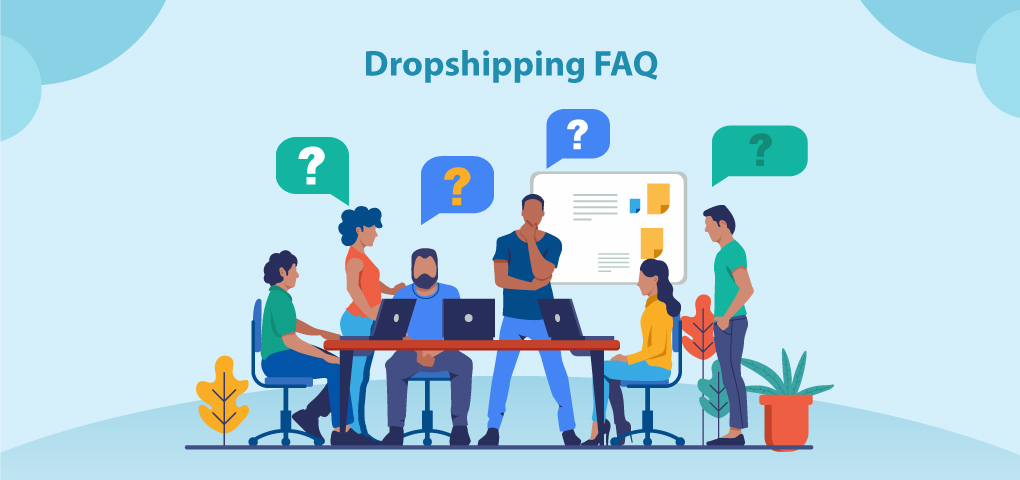Dropshippers are often faced with the dilemma of using a self-hosted or a hosted dropshipping platform. While both options present their various pros and cons, choosing the best platform to sell is largely based on the technical expertise and finances of the dropshipper. To guide the dropshipper on the best type of e-commerce platform to use, an analysis of both the self-hosted website and Amazon shall be carried out.
Self-Operated or Self-Hosted E-commerce Website
A self-operated e-commerce website is one personally built by the distributor. Here, the dropshipper is solely responsible for setting up the server, storing files, and maintaining the server. Before hosting the server, dropshippers should seek expert advice from e-commerce website builder UK to prevent errors in the system's working. Dropshippers that opt for a self-hosted platform must be knowledgeable enough to understand the website's operations and properly maintain it when needed. The dropshipper must realize that time, attention, and funds are required to promote the small business e-commerce website, reach the target audience, and ensure the smooth operations of the business.
Pros of a Self-hosted E-commerce Platform
- Improved Flexibility
A distributor has more control over the display and customization of the e-commerce website design UK. Flexible changes can be made to the store's appearance and items. The dropshipper can include more features to the website to improve functionality.
- Set-up
A self-operated e-commerce website can be set up in any location. This is so, due to the non-attachment to any centralized store, traffic can be generated wherever the store is.
- Suitability
The operations of a self-hosted e-commerce platform are more suited for entrepreneurs and technical-oriented persons as the workings of the platform would pose lesser challenges to them when setting up.
- Control
Dropshippers that build their website have total control over everything that happens, such as creating and modifying policies, coding, and content. They can avoid policies that affect the operations of their businesses.
- Switching
The process of switching to a self-hosted platform cost lesser than in a hosted platform.
Cons of a self-hosted e-commerce website
- Difficult to set up
Setting up an e-commerce website can be very difficult to achieve. It requires a lot of technical expertise to ensure a smooth-running platform. Processes such as selecting an e-commerce platform and installation set-up can be tasking.
- Limited Support
Dropshippers cannot seek eternal help if there is a fault in the platform. The drop shippers resolve these issues independently or contact the company used in setting up the server.
- Cost
Setting up a self-hosted e-commerce server requires huge costs. Individuals intending to set up their platforms must have adequate funds and expertise. More attention and strategy are needed to engage the target audience and promote the store. Sometimes, the time, money, and attention required in hosting the platform may shift the attention required in running your online store.
Hosted Ecommerce Platforms (Amazon)
A hosted e-commerce website is a hosting where the website owners manage the server, customization, and website appearance. Here the hosting services regulate the processing, security, and cart services while the drop shipper advertises products in the platform for an agreed cost or free. An example of a hosted e-commerce platform is Amazon.
Pros of selling on Amazon
- Increased Sales
Amazon is one of the top shopping platforms globally, and thus, visit the site regularly to shop. Listing your product on Amazon improves the visibility of the products to customers and helps boost sales. The platform's credibility makes it a popular choice for purchase over an upcoming sales platform.
Dropshippers can search for the best-selling products on Amazon UK and employ strategic means to boost competition and sales.
- Reduced marketing costs
Sellers may not spend so much money advertising their products on Amazon due to the site's huge traffic.
- Expansion
Amazon is a global e-commerce platform that exposes your business and products to the international market and helps test the product's strength.
- Instant Credibility
Buyers tend to trust Amazon sellers due to the reputation of the platform.
- Less Management
The stress of fixing technical issues on Amazon is eliminated.
- Increased customer base
Buyers may become regular customers after one purchase from your shop. This helps to increase customer strength.
Cons of selling on Amazon
- Fees
Amazon places heavy professional and individual commissions on the sale of products on the platform. The fees can affect the profit margin of the dropshipper.
- Competition
Amazon has a large community of sellers and displays products based on the best fit and product type. This can pose difficulties to buyers when locating your shop, especially when multiple sellers for the same product.
- Restrictions and Regulations
Amazon has restrictions to guide the operations of sellers on the platform. For example, there is a prohibition against asking for good reviews. Amazon only permits communication about the fulfillment of orders between the buyer and seller. They also mandate response to customers within 24 hours.
Dropshipper, How to choose the Marketplace
Amazon provides an easy-to-use and credible platform with millions of global customers visiting the site daily. It allows for the seller's flexibility to focus on other different aspects of the business. However, only buyers that are willing to comply with the regulations and restrictions of Amazon should sell on the platform. Sellers who are also ready to compete and tag product prices competitively can sell on the forum. Unique products help the seller stand out competitively in the crowd of sellers. Amazon is also better for dropshippers who need instant traffic to their products and do not have the technical expertise to host their platform.
As much as Amazon is open to all sellers, buyers should check the guidelines on how do you sell on Amazon and what can you sell on Amazon to determine the Marketplace best for your products. Additionally, to improve visibility on Amazon, sellers can utilize SEO for an e-commerce website to improve traffic to their shop.
Self-hosting of e-commerce websites eliminates the regulations of Amazon, and buyers can sell what they want. Dropshippers can opt for a self-hosted website for products that cannot be sold on Amazon are choose a self-operated website if they are not willing to engage in the hefty competition on Amazon. On the other hand, dropshippers with the right funding, technical expertise, and ready to promote the website can decide to host their website.
Conclusion
A self-operated and hosted e-commerce platform comes with its benefits and disadvantages. Generally, buyers who intend to sell on Amazon should check the guidelines to see if their products fit and employ SEO for an e-commerce websites to improve visibility to buyers, especially when dealing with the best-selling products on Amazon UK. Buyers who want to host their website must have the right technical expertise and funding.





